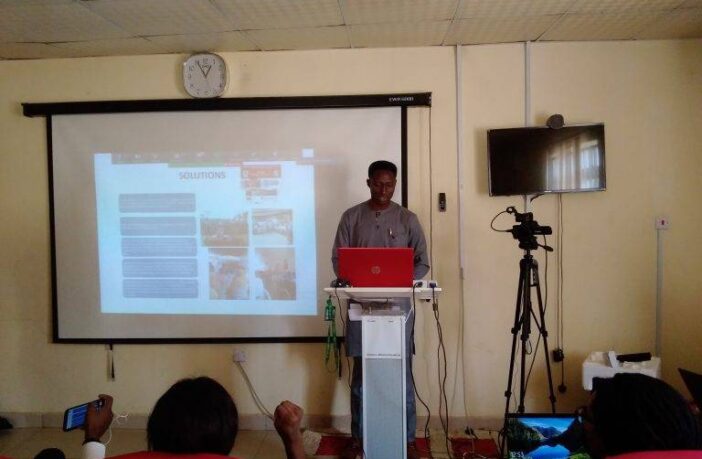Prof. Obiageli Nnodu, the Director, Centre of Excellence for Sickle Cell Disease Research and Training (CESRTA), has called on the Federal Government and policymakers to create a budgetary allocation to help address sickle-cell disease in the country.
Nnodu made the call on Thursday, in Gwagwalada at the Sickle Pan African Consortium NigEria Network (SPARC-NEt) Stakeholders Engagement and interactive workshop between researchers and sickle-cell patients to improve care.
She said the aim of the workshop was to engage critical stakeholders, patients, caregivers, health workers, policymakers, and the media on the nature of sickle cell disease.
According to her, the workshop was also aimed to ascertain the challenges that patients face in accessing care and the best way to provide the services and follow up actively in the clinics at the SPARC-NEt sites.
“Sickle cell disease is highly prevalent in Nigeria, according to the National Demographic survey 2018, 20 per cent of children ages 6-59 months have SCT (HbAS) and two per cent have the hemoglobin C trait (HbAC).
“Sickle cell disease is a debilitating condition which can lead to severe health problems like pain, organ damage or failure, infections, stroke, headache, liver problems, and so many others.
“The government should have budgetary allocation for sickle-cell disease starting with newborn screening and there should be legislation support National Health Insurance for sickle-cell patients.
“There should be a budget for research for sickle-cell disease and newly delivered mothers in the country should also take newborn screening for sickle cell seriously for healthy living,” she said.
The News Agency of Nigeria (NAN) reports that World Sickle Cell Day was established by the United Nations General Assembly in 2008 to increase awareness about the sickle-cell disease and its cure.
Nnodu said that the burden of sickle-cell disease could be controlled and averted if people make informed choices based on their knowledge of genotype before marriage.
The expert added that sickle-cell disease remains a major public health problem in the country, especially in rural areas due to the low level of awareness.
However, she also advised parents to give their children health education early in life to help them make informed decisions on the dangers associated with sickle-cell disease for healthy living.
A 22-year-old sickle-cell patient, Okpanachi Easter thanked the organisers for the workshop and called on the government to create a health insurance scheme for sickle-cell patients in the country.




